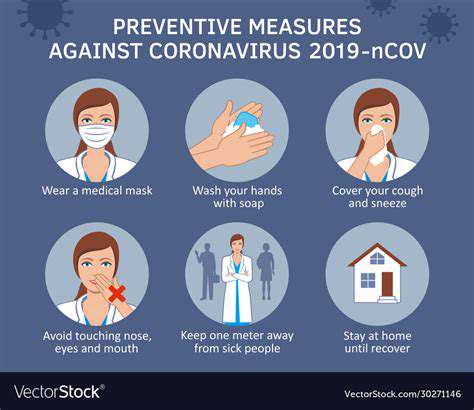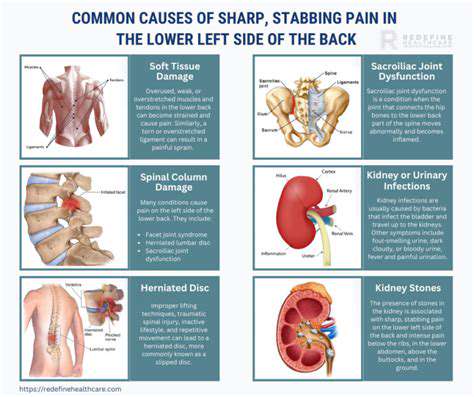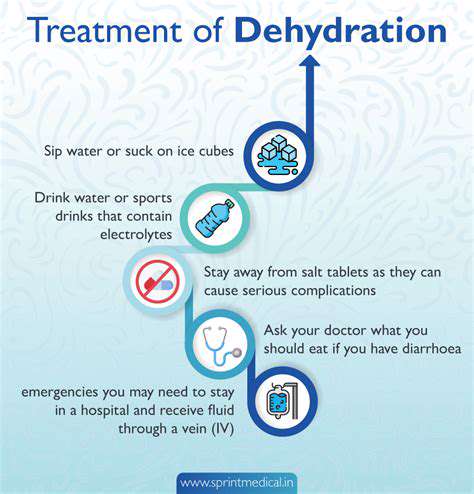Waking Up Dehydrated: How It Triggers Morning Headaches
The Connection Between Dehydration and Headaches
The Science Behind Dehydration
Dehydration occurs when the body loses more fluids than it takes in, resulting in an imbalance that can affect various bodily functions. Even mild dehydration can lead to noticeable symptoms, including fatigue, dry mouth, and headaches. During sleep, the body continues to lose water primarily through respiration and sweat, making it easy to wake up in a dehydrated state.
The human brain is approximately 75% water, and dehydration can cause it to shrink temporarily, leading to tension and discomfort. This shrinkage can trigger pain receptors and cause headaches. When the brain is well-hydrated, it functions optimally, but even slight dehydration can impair cognitive abilities and mood, contributing to discomforts like headaches.
Moreover, dehydration can lead to a decrease in the production of neurotransmitters, which are essential for mood regulation and brain function. Travel, illness, or excessive alcohol consumption can exacerbate fluid loss, highlighting the need for consistent hydration practices.
Understanding how dehydration affects the body is crucial for recognizing potential headache triggers. By being aware of how water intake influences bodily functions, individuals can take proactive steps to maintain hydration and minimize headache occurrences.
Symptoms of Dehydration-Related Headaches
Morning headaches caused by dehydration are often characterized by a dull, throbbing pain that can range from mild to severe. This type of headache may be accompanied by other symptoms of dehydration, such as fatigue, irritability, and dry skin. Identifying these symptoms early can help mitigate discomfort by encouraging more aggressive hydration practices.
In some cases, dehydration-related headaches can provoke nausea or sensitivity to light and sound. These additional symptoms may resemble those of migraine headaches, making it crucial to differentiate between the two and understand their underlying causes. Professionals recommend maintaining a hydration log to identify patterns regarding water intake and headache occurrence.
Unfortunately, many individuals attribute morning headaches to stress or poor sleep quality rather than dehydration. Increasing awareness of hydration’s effects on the body is essential for early recognition and treatment of these headaches. A simple intervention—drinking water first thing in the morning—may alleviate symptoms significantly.
In summary, recognizing the signs of dehydration-related headaches can empower individuals to take control of their hydration strategies and minimize discomfort associated with waking up dehydrated.
Hydration Strategies for Better Mornings
One effective strategy for preventing dehydration-related headaches is to develop a robust hydration routine. This includes setting reminders to drink water throughout the day and keeping a water bottle handy. By establishing a routine, individuals can better combat fluid loss and stay consistently hydrated.
In addition to water, incorporating hydrating foods into daily meals can improve hydration levels. Fruits and vegetables with high water content, such as cucumbers, oranges, and watermelon, serve as excellent sources of hydration. Understanding that meals can contribute to overall fluid intake can encourage healthier dietary choices.
Another useful tactic is to limit caffeine and alcohol consumption, as both can lead to dehydration. Prioritizing water over caffeinated and alcoholic beverages can help maintain fluid balance, especially in the hours before bedtime, where staying hydrated can significantly influence sleep quality and morning comfort.
Furthermore, individuals can also consider using hydration supplements or electrolyte drinks, especially after intensive exercise or exposure to hot weather. These products can support quicker hydration and ensure that essential minerals are replenished, thus reducing the risk of morning headaches.
When to Seek Medical Attention
While dehydration-related headaches can typically be managed through lifestyle changes, persistent or severe headaches may require medical attention. Understanding when to consult a healthcare professional is vital for addressing underlying issues and ensuring effective headache management.
If headaches are accompanied by severe symptoms such as confusion, extreme fatigue, or faintness, it may indicate a more serious condition requiring prompt medical evaluation. Persistent headaches should never be overlooked, especially if they occur frequently upon waking despite an adequate hydration routine.
Consulting a healthcare professional can also aid in ruling out other potential causes of headaches, such as migraines or tension headaches. They may recommend diagnostic tests or lifestyle evaluations to help identify the root of the problem.
Moreover, individuals should advocate for their health by discussing their hydration habits and daily fluid intake with their healthcare providers. Such discussions can lead to tailored advice more effectively aimed at reducing headache incidents and improving overall well-being.
How Dehydration Affects Your Body
Understanding the Basics of Dehydration
Dehydration occurs when your body loses more fluids than it takes in, leading to an imbalance that can affect various bodily functions. Water is crucial for maintaining hydration levels, and even a small decrease in fluid intake can have significant impacts on your overall health. In the morning, the likelihood of waking up dehydrated increases due to factors such as decreased water consumption overnight and the loss of fluids through breathing and perspiration.
When the body is dehydrated, several physiological processes are disrupted. For example, the regulation of body temperature becomes less effective, and the kidney's ability to filter waste is impaired. Moreover, dehydration can influence your mood and cognitive function, making you feel fatigued or irritable. Individuals may notice cognitive side effects such as difficulty concentrating or increased feelings of anxiety, all of which can stem from inadequate hydration.
Understanding how dehydration occurs can help you implement strategies to hydrate effectively. Simple practices, such as keeping a water bottle by your bedside or having a glass of water before sleeping, can fundamentally shift your morning experience and reduce the risk of dehydration-related headaches.
Dehydration and Its Connection to Morning Headaches
Morning headaches are quite common and can be primarily attributed to dehydration. As the body relies on adequate hydration for optimal brain function, a lack of water can lead to a range of symptoms, including headaches. This painful condition may occur due to reduced blood volume and subsequent nerve sensitivity, both of which can cause discomfort in the head region.
Additionally, dehydration can lead to an imbalance of electrolytes that are essential for various bodily functions, including nerve signaling. A drop in key electrolytes such as sodium and potassium can trigger headaches as the brain struggles to operate under these unbalanced conditions. Recognizing this link between hydration and headache occurrence highlights the importance of maintaining fluid intake throughout the day, not just when symptoms arise.
For prevention, it’s important to understand your own hydration needs. Keeping track of your daily water intake, especially before bed, can help reduce the frequency and intensity of morning headaches. By consuming a balanced diet with high-water-content foods and prioritizing hydration, you can minimize the likelihood of waking up with headache discomfort.
Symptoms and Identification
Common Symptoms of Morning Headaches
Morning headaches can manifest in various ways, making them a complex issue to identify. One of the most common symptoms is a throbbing pain, often localized at the temples or the back of the head. This sensation can vary from mild discomfort to debilitating pain, impacting daily activities.
In addition to the intense pain, individuals may experience stiffness in the neck and shoulders, which can exacerbate the headache. This stiffness is often a result of muscle tension that accumulates during sleep, particularly when dehydration is a factor.
Another notable symptom includes sensitivity to light and sound. Those suffering from morning headaches may find that bright lights or loud noises worsen their discomfort, leading to a need for a dark, quiet space to alleviate the pain.
Nausea can also be a common companion to morning headaches. This feeling can contribute to an overall sense of unease and can prevent individuals from starting their day effectively, sometimes resulting in missed work or activities.
Lastly, cognitive difficulties, such as trouble concentrating or memory lapses, can occur. This symptom can make it difficult for individuals to perform routine tasks, further disrupting their daily lives and well-being.
Identifying Dehydration as a Trigger
Dehydration is a significant factor that can lead to morning headaches. During sleep, the body continues to lose water through breathing and perspiration, and this loss can lead to a deficit by morning. Recognizing the signs of dehydration is crucial in understanding its impact on headache occurrence.
One of the easiest ways to identify dehydration involves monitoring urine color. Dark yellow or amber urine typically indicates that the body is lacking sufficient water, while lighter colors signal adequate hydration. This simple test can serve as an early warning sign for potential morning headaches.
Another indicator of dehydration is experiencing dry mouth or throat upon waking. This sensation often accompanies a headache and can serve as a valuable clue in determining if dehydration is the underlying cause.
Furthermore, tracking fluid intake can help identify problematic habits. Many individuals may not realize how little they hydrate throughout the day, leading to cumulative deficits by the time they go to bed. Keeping a hydration diary can assist in recognizing patterns and implementing necessary changes.
Lastly, evaluating overall lifestyle choices can help pinpoint dehydration as a trigger. High caffeine or alcohol intake, particularly before bedtime, can lead to increased fluid loss, amplifying the chances of waking up with a headache. Recognizing these habits is essential for prevention.
Preventive Measures

Understanding Dehydration
Dehydration occurs when the body loses more fluids than it takes in, leading to an imbalance in bodily functions. This condition can arise from various factors, including inadequate fluid intake, excessive sweating, and certain medical conditions. Morning dehydration is particularly common, as individuals often go several hours without water during sleep.
The body's needs for hydration don't pause overnight; hence, waking up dehydrated can trigger various symptoms, including headaches. Understanding the signs of dehydration can help you take necessary actions to prevent headaches in the morning.
It’s essential to recognize that hydration levels may vary from person to person, influenced by factors such as age, diet, and activity level. Maintaining optimal hydration is key to overall health and well-being.
The Science Behind Morning Headaches
Morning headaches can result from multiple factors, including dehydration, poor sleep quality, and sleep apnea. When the body lacks sufficient water, it compromises brain function, often resulting in pain and discomfort. Dehydration leads to reduced blood volume, which can trigger pain receptors and cause headaches.
Moreover, if dehydration occurs during the night, it can disrupt the sleep cycle, leading to a cycle of tiredness and further headaches. Other factors, such as the position in which a person sleeps, can also contribute to morning headaches.
By understanding the connections between dehydration and headache occurrence, individuals can better identify potential causes of their symptoms and address them proactively.
Effective Hydration Strategies
To prevent waking up dehydrated, it's crucial to establish an effective hydration routine. Drinking a sufficient amount of water throughout the day, particularly in the hours leading up to bedtime, is fundamental. Consider keeping a glass of water by your bedside to sip on if you wake up during the night.
Incorporating hydrating foods into your diet can also significantly help maintain hydration levels. Fruits and vegetables such as cucumbers, oranges, and watermelons are rich in water content and can supplement your daily intake.
Additionally, measuring daily water intake can ensure consistency in hydration habits. Aim for a specific target, such as eight 8-ounce glasses per day, and adjust based on physical activity and climate conditions.
Recognizing the Symptoms of Dehydration
Identifying the symptoms of dehydration can help prevent its negative effects, including morning headaches. Common signs include dry mouth, fatigue, and dizziness. Being aware of these signs is essential, as early intervention can prevent more severe dehydration.
In some cases, individuals may also experience muscle cramps or irritability. Recognizing these symptoms early can prompt individuals to increase their fluid intake before bed, potentially alleviating issues like morning headaches.
Maintaining awareness of how your body feels and responding to signs of dehydration can lead to improved quality of sleep and overall health benefits. It's important to listen to your body and act accordingly.
When to Seek Medical Attention
Understanding the Symptoms of Dehydration
Dehydration can manifest through various symptoms, and recognizing them early is crucial. One of the most common symptoms is a persistent headache. This headache often occurs in the morning after a night of inadequate hydration.
Dry mouth and thirst are also telltale signs of dehydration. Upon waking, many people may notice an unusual dryness in their mouth, which can be a clear indication that their body lacked sufficient fluids overnight.
Fatigue is another common symptom. A person might feel unusually tired or lethargic after a night's sleep, which can be attributed to the body's struggle to function without proper hydration.
Dizziness or lightheadedness is frequently reported by dehydrated individuals. This sensation can occur when standing up quickly after lying down, signaling that the body may not have enough fluids to maintain blood pressure.
Lastly, dry skin might be evident. When the body is dehydrated, the skin can appear less elastic and may feel dry or flaky, serving as a visible reminder of the internal need for hydration.
How Dehydration Affects Sleep Quality
The link between dehydration and sleep quality is often overlooked. When the body is lacking fluids, it can lead to various disturbances that impact how well a person sleeps.
For example, dehydration can cause increased body temperature. A rise in body temperature can make it challenging to fall asleep or stay asleep, leading to restless nights.
Additionally, some individuals may experience frequent trips to the bathroom due to an imbalance in their hydration levels, disrupting the sleep cycle and leading to fragmented sleep.
Another factor is sleep apnea, which can be exacerbated by dehydration. A dry throat may increase the likelihood of snoring or breathing irregularities, further compromising sleep quality.
Moreover, due to the discomfort caused by dehydration, individuals may experience difficulty relaxing during the transition to sleep. This stress can delay the onset of sleep and contribute to a feeling of tiredness upon waking.
Best Practices for Morning Hydration
To combat the effects of waking up dehydrated, it’s essential to establish effective hydration routines. One of the simplest practices is to drink a glass of water as soon as you wake up. This can help rehydrate the body after hours without fluids.
Staying hydrated throughout the day is vital. Aim to drink at least eight 8-ounce glasses of water daily, or more if you are active or live in a hot climate. Tracking water intake can also be beneficial.
Incorporating hydrating foods into your diet can aid in hydration. Fruits and vegetables, such as cucumbers, oranges, and watermelon, have high water content and can contribute to your daily fluid intake.
Setting reminders to drink water can help create a consistent habit. Utilizing smartphone apps or alarms can be an effective way to ensure you're drinking enough water throughout the day.
Lastly, avoiding dehydrating substances like caffeine and alcohol, especially before bedtime, can significantly improve hydration levels and, consequently, sleep quality.
Recognizing When to Seek Medical Attention
While mild dehydration can usually be remedied at home, there are certain situations where medical attention is warranted. If severe headaches persist for multiple mornings without relief from hydration, it may be time to consult a healthcare provider.
Signs of severe dehydration include extremely dry skin and mouth, rapid heartbeat, or low blood pressure. If you experience these symptoms, seeking medical evaluation is critical.
Additionally, if dehydration symptoms are accompanied by confusion, disorientation, or dizziness that doesn’t improve with rehydration, these may be signs of a more serious condition.
For individuals with underlying health conditions, such as kidney issues or diabetes, it’s wise to approach dehydration more cautiously and seek medical advice early.
Lastly, if it becomes challenging to keep fluids down, or if vomiting accompanies dehydration symptoms, medical intervention may be necessary to prevent complications.



